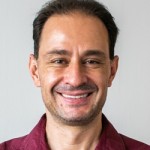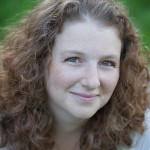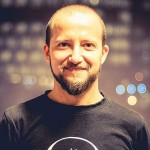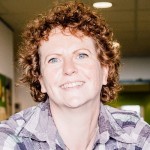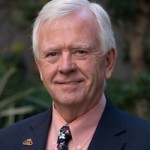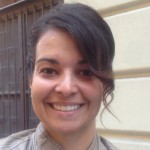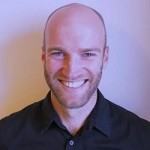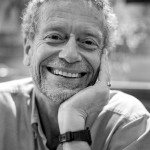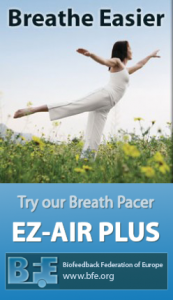Faculty
Santiago Brand, BCN, BCB, QEEGDL
Santiago Brand is the founder and director of MindLab Neuroscience Consulting in Singapore. Santiago is a clinical and sport psychologist board certified in qEEG brain mapping, biofeedback and neurofeedback. He is an educational instructor for InMindOut centers in the United States and faculty member at the “Learn From The Best ” program of the Biofeedback Federation of Europe (BFE). Santiago is a scientific advisor for iMediSync in South Korea, NEUROWYZR in Singapore and 180 Sanctuary in Thailand. Santiago has 15 years of experience working with sports and peak performance and he has lectured in 20 countries. Santiago has been interviewed in multiple media outlets including CNN as well as being a frequent guest host in the NueroNoodle Podcast and the How To Live Podcast.
Inna Khazan, PhD, BCB, BCB-HRV
Inna Khazan, Ph.D., BCB is a clinical psychologist, and faculty at Harvard Medical School. She maintains a private practice in Boston, working with clients on optimizing their health and performance. Dr. Khazan is recognized as a pioneer in the area of mindfulness and acceptance based biofeedback, and is the author of Clinical Handbook of Biofeedback: A Step-by-Step Guide to Training and Practice with Mindfulness.
Dr. Eugenio Lizama
Dr. Eugenio Lizama is a Sports psychologist, BCIA Board Certified for neurofeedback, a Master in Affective Neuroscience and Master in Sport and management. For more than 15 years he has been working to increase high-level sports performance with Biofeedback and neurofeedback. He has developed mental training protocols for the following disciplines: F1, Motogp, Tennis, Golf and Soccer. He is scientific director of the Cen Center (Neuropsychological Training Center) & Sport Brain Center Miami and lecturer in postgraduate courses in universities in Chile and Europe. He is a member of the AAPB Association for Applied Psychophysiology and Biofeedback and of the ISNR International Society for Neurofeedback & Research.
Danielle Matto works as a holistic oriented psychologist and BCIA certified biofeedback therapist (BCB-HRV) in mental healthcare. In her private practice she offers short-term treatment, combining general biofeedback, HRV biofeedback and audiovisual entrainment with psychological techniques (ACT, solution focused therapy, stress management). For the last couple of years, she added lifestyle and motivational interviewing to the mix. She treats patients with depression, anxiety, sleep disorders, stress, burnout, IBS and hypertension. From the beginning of her career, she is fascinated by biofeedback: “the power of showing your client the effect on the body of changes in thoughts, feelings and behaviour is enormous. It is the best way to create awareness of your autonomic state and to learn internal self-regulation skills: the ability to adjust your psychophysiological state to the demands of the situation and to be able to recover from autonomic imbalance”. In addition to her clinical work she is a teacher and BCIA accredited mentor. She has been actively involved in the Biofeedback Federation of Europe from its founding in 1995 till 2012. She remains a member of the BFE advisory board.
Donald Moss, Ph.D., is Dean of the College of Integrative Medicine and Health Sciences, at Saybrook University. There he has built training programs in clinical hypnosis, biofeedback, integrative mental health, and integrative and functional nutrition. Dr. Moss has served as president of Division 30 (hypnosis) of the American Psychological Association, president of the Association for Applied Psychophysiology and Biofeedback (AAPB), and president of the Michigan Society for Behavioral Medicine and Biofeedback.
He is a delegate to APA’s Council of Representatives, treasurer for the Society of Clinical and Experimental Hypnosis (SCEH), a delegate to the International Society for Hypnosis, a Board member of the Biofeedback Certification International Alliance (BCIA), and an advisor for the International Network for Integrative Mental Health. Dr. Moss is a Fellow of SCEH, a Fellow of Division 30 (APA), a Fellow of the Michigan Psychological Association, and a Senior Fellow in general biofeedback and neurofeedback of the BCIA.
He is co-author of Pathways to Illness, Pathways to Health (Springer, 2013), chief editor of Handbook of Mind-Body Medicine for Primary Care (Sage, 2003) and Humanistic and Transpersonal Psychology (Greenwood, 1998). He currently has a new book under contract for Springer with co-author Angele McGrady on Integrative pathways: Navigating chronic illness with a mind-body-spirit approach. He is chief editor of Biofeedback: A Clinical Journal, a quarterly publication and has edited a number of special issues on hypnosis, pediatric applications, and related topics. He has been an associate editor or consulting editor for the journal Applied Psychophysiology and Biofeedback, the Journal of Neurotherapy, Psychophysiology Today, and other journals. He has published over 70 articles and book chapters on psychophysiology, spirituality, health, and integrative medicine. His most recent chapter is titled The Use of Biofeedback and Neurofeedback in Pediatric Care, in a new volume on Functional Disorders in Pediatrics (Springer, 2014).
Marianna Munafò is a Psychologist and psychotherapist who earned her PhD in Psychobiology (specializing in Psychophysiology) at the University of Padua, winning in 2010 the national prize of the Italian Association of Psychology (AIP) for the best doctoral thesis. She has conducted many research studies, funded by ANMIL (National Association of Mutilated and Injured Workers) and by Confindustria Vicenza, in collaboration with important Italian hospitals and universities, for the study of the relationships between performance and stress management.
Co-founder, Project Manager and Director of Inside Academy, she works on the development of interventions based on Biofeedback and Neurofeedback technologies, aimed at increasing psychophysiological well-being and improving the performance of the athlete and manager in extremely competitive contexts, where stress management is crucial.
She has collaborated in the creation of stress management services for the Scuderia Ferrari and currently designs and implements Mental Training programs to increase the self-regulation skills of the young Ferrari Driver Academy drivers. Since March 2014, she has been a Biofeedback and Neurofeedback instructor and local expert certified by the Biofeedback Federation of Europe (BFE).
Brendan Parsons, MSc, PhD, BCN
Brendan Parsons has a doctorate in psychology – neuropsychology and cognitive science from the University of Montreal. Certified “BCN” since 2009, he has a decade and a half’s worth of experience in the fields of biofeedback and neurofeedback. Extremely lucky to have been a part of the BFE early in his career, he had the lucky opportunity to be trained by world-recognized experts such as Dr. Robert Thatcher, Drs Lynda and Michael Thompson, Dr. Paul Swingle, Dr. Johanne Levesque and Dr. Mario Beauregard.
His experience in biofeedback and neurofeedback applications extend to athletic domains (with the Vancouver Canucks of the National Hockey League, Olympic and Paralympic athletes from Canada, the United States and Sweden), to that of business and leadership performance (for example with the International Consortium of Master of Business Administration; CIMBA). His preferred practice and specialty remain clinical applications. He works with children, adolescents and adults; AD/HD (attention deficit/hyperactivity disorder), ASD (autism spectrum disorder), learning disabilities, emotional and behavioural regulation problems (anxiety, post-traumatic stress disorder – PTSD, depression, obsessive-compulsive disorder – OCD), chronic pain, sleep disorders, tinnitus…
For years, Brendan worked at Neurodezign, a leading clinical practice in Quebec, Canada. There, he became an expert in neurofeedback and in qEEG interpretation, helping design and implement the methods utilized in this practice and in a number peer-reviewed research studies demonstrating the efficacy of neurofeedback and other related neuroscientific techniques.
He is a proud member of the BCIA since 2009. He is also proud to have contributed to the development of the Biofeedback Foundation of Europe in his early days in the field. Since 2010, he has taught various levels and methods of biofeedback and neurofeedback to professionals around the world. Concerned with the growth of the field and the need for robust empirical support for applied techniques, he has contributed to several clinical research studies and continues to be involved in ongoing works in collaboration with a number of Canadian universities.
Co-founder of the first company to offer a French-language BCIA-certified neurofeedback course in France, he is currently invested in the development of NeuroLogic, his latest co-founded project. His mission remains helping professionals in various fields integrate evidence-based neurofeedback techniques into their practice.
Erik Peper, Ph.D., BCB
Erik Peper, Ph.D.. BCB is an international authority on biofeedback and self-regulation. He is Professor at the Institute for Holistic Healing Studies / Department of Health Education at San Francisco State University. He is President of the Biofeedback Foundation of Europe and past President of the Association for Applied Psychophysiology and Biofeedback. He holds Senior Fellow (Biofeedback) certification from the Biofeedback Certification Institute of America He was the behavioral scientist (sport psychologist) for the United States Rhythmic Gymnastic team. He received the 2004 California Governor’s Safety Award for his work on Healthy Computing and the 2005 Sheila Adler Award from AAPB for his efforts to support and encourage student participation. He is an author of numerous scientific articles and books. His most recent co-authored books are Muscle Biofeedback at the Computer, Make Health Happen Training: Yourself to Create Wellness and De Computermens. He is also the co-producer of weekly Healthy Computing Email Tips. His research interests focus on psychophysiology of healing, illness prevention, voluntary self-regulation, holistic health, healthy computing, respiratory psychophysiology and optimizing health with biofeedback.
Ralph Sztembis, Ph.D.
Ralph Sztembis, interventional cardiologist and psychologist, member of Polish and European Societies of Cardiology. Dr Sztembis has 18 years of clinical experience in combining self-regulation techniques and patients’ education with achievements of modern cardiology, implementing principles of mind-body medicine into practice. He has experience in clinical cardiology gained in Europe and Middle East. His main areas of in-hospital clinical interests are complex interventional procedures on coronary arteries and PFO/ASD closure. He is the author of educational tools for cardiac patients that comprise self-regulation techniques including e-books, audio-books, comics, e-learning platforms, online cardiac rehabilitation platforms, applications for breathing exercises, educational games for children. Author of “E-pill” in-hospital educational program for patients after heart attacks. Inventor of cardiac nordick-walking sticks and cardiac exercise handles. At the moment he is visiting lecturer at Rzeszow University, Poland and CEO of research-developmental center of Ideo Ltd., Poland where he is responsible for developing of IT based rehabilitation and educational platforms for cardiac patients and their families.
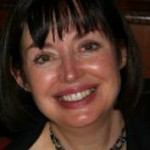
Lynda Thompson, Ph.D., BCN
Lynda Thompson, Ph.D., BCN, is a Registered Psychologist with experience in teaching, clinical psychology, school psychology and ownership of learning centers. Since 1993 she has been Executive Director of The ADD Centre, a private service devoted to helping people improve behavior and learning. The clinic also deals with clients who have other disorders associated with poor attention including epilepsy, Asperger’s Syndrome, learning disabilities, Tourette’s Syndrome, closed head injury, autism, mood disorders, and anxiety. Her doctoral dissertation (1979) dealt with self-esteem in hyperactive children treated with methylphenidate. She is co-author with pediatrician William Sears of The ADD Book: New Understandings, New Approaches to Parenting Your Child, published by Little, Brown & Co. of New York, and co-author of the first textbook for EEG Biofeedback, namely, The Neurofeedback Book: An Introduction to Basic Concepts in Applied Psychophysiology, published by AAPB and available through the AAPB’s website bookstore.
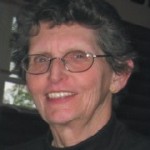
Vietta E. Wilson, Ph.D., BCB, BCN
Vietta E. Wilson, Ph.D., BCB, BCN works at the York University, Toronto, Ontario Canada, has 25 years of education and 25 years of experience in Canada and the United States. She has worked since 1971 in sports (Olympic performers from archery to yachting), education (elementary to university), medicine (cerebral palsy clinic), psychology (Atkinson Counseling Centre) and business (president of stress management company). She teaches sport psychology, counseling and biofeedback assisted self-regulation courses at the graduate and undergraduate level. Her current research is topographical EEG brain mapping of visual and kinesthetic imagery. She still plays decent tennis, walks and talks a lot, and is a vociferous reader.
